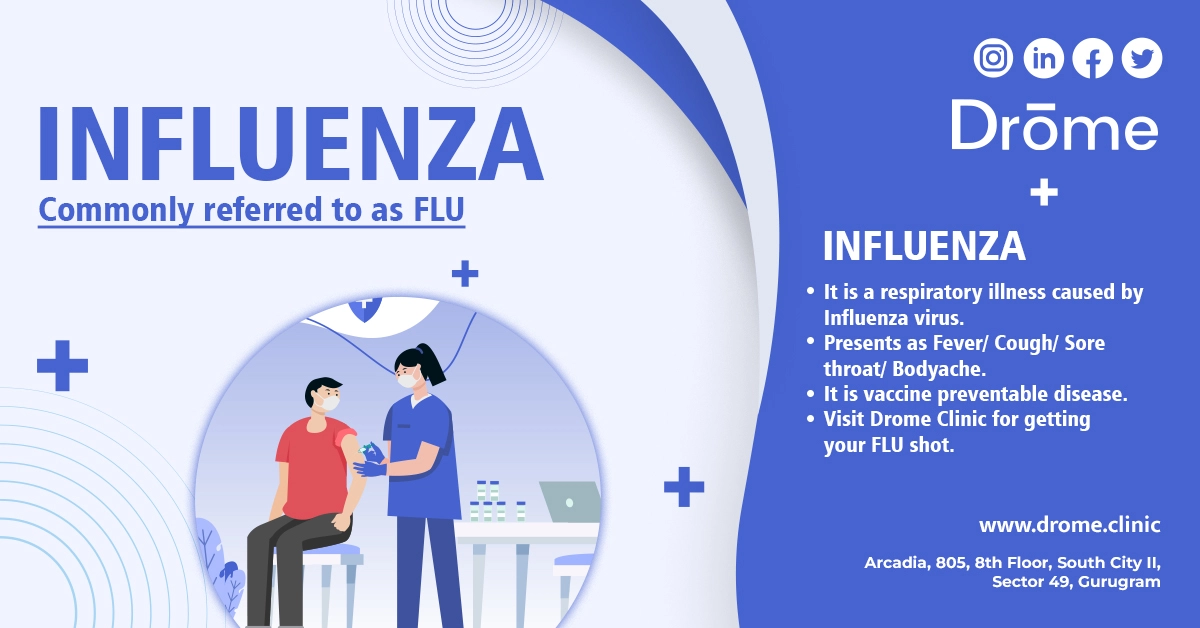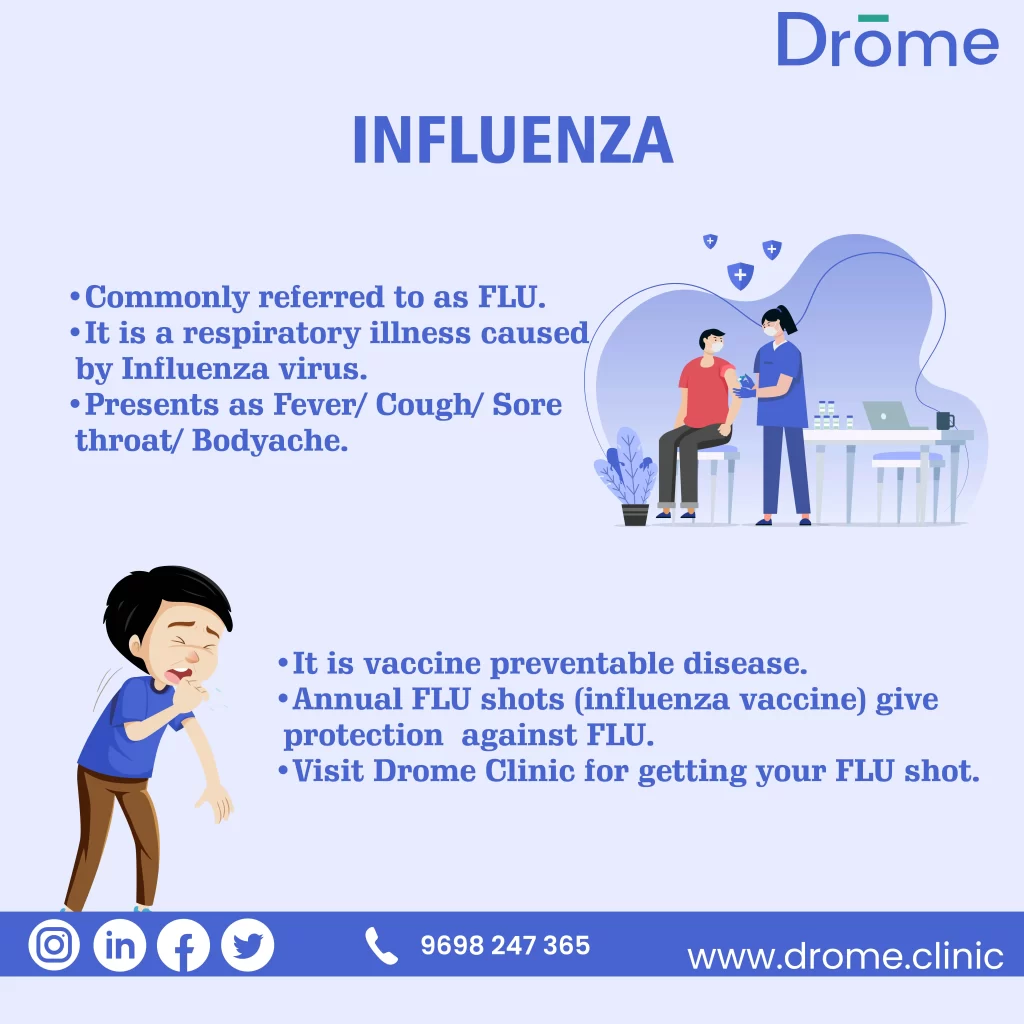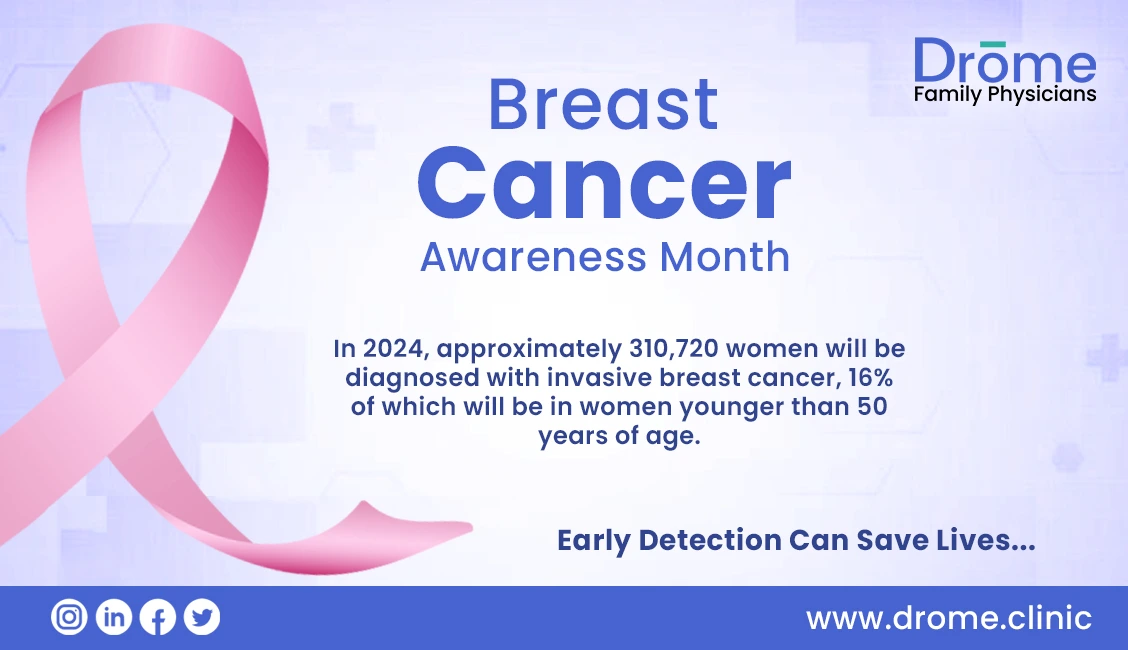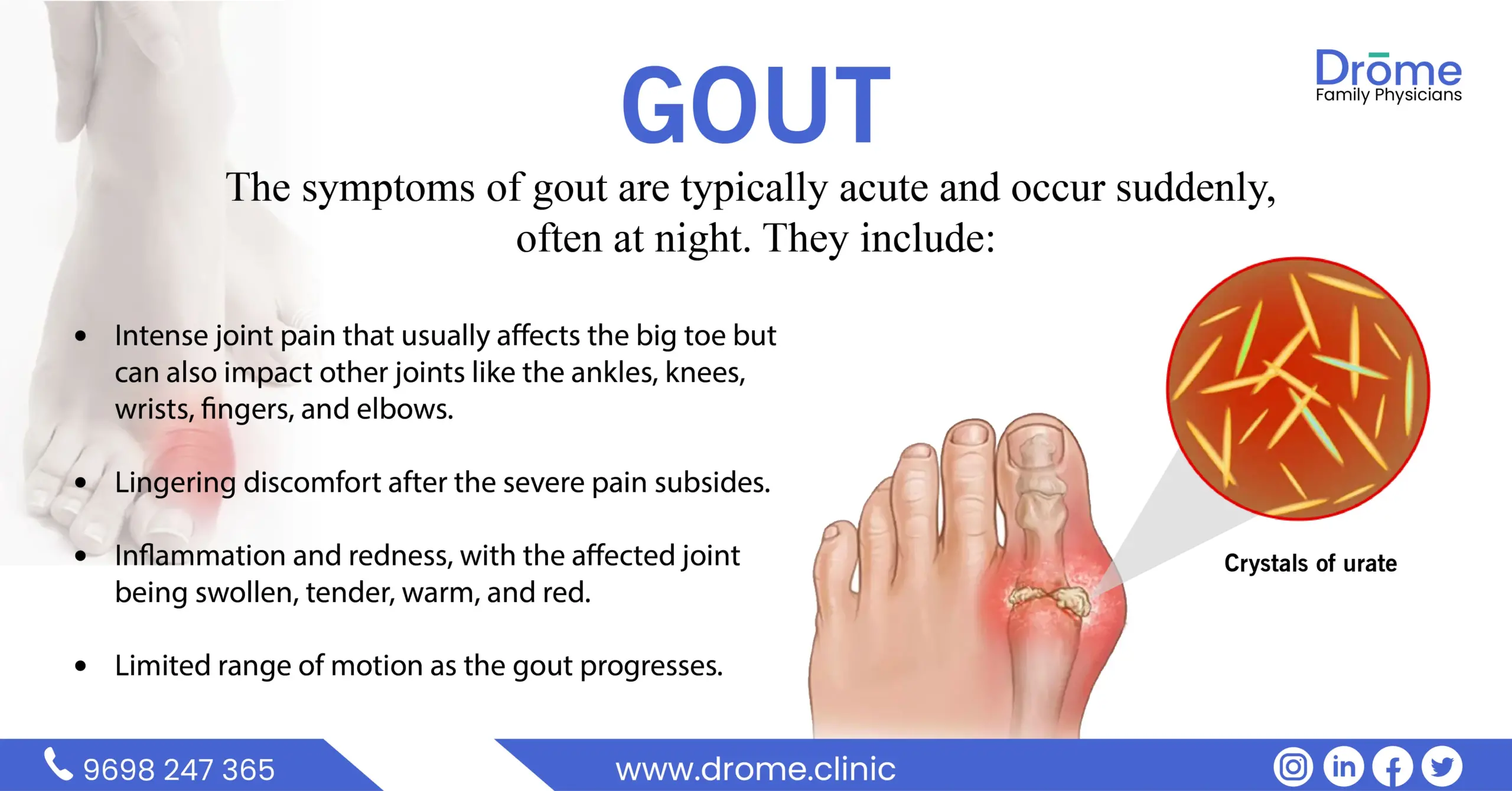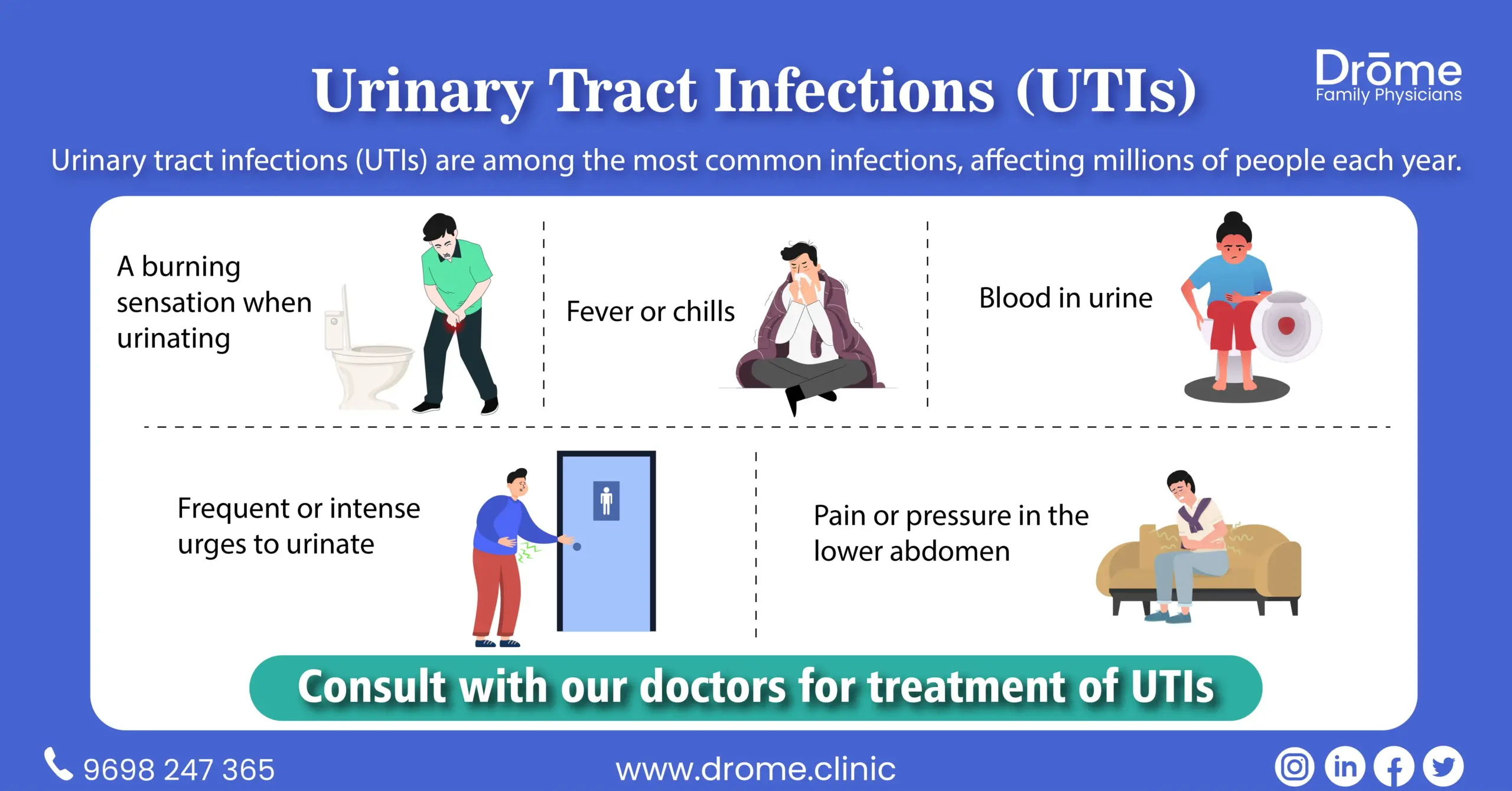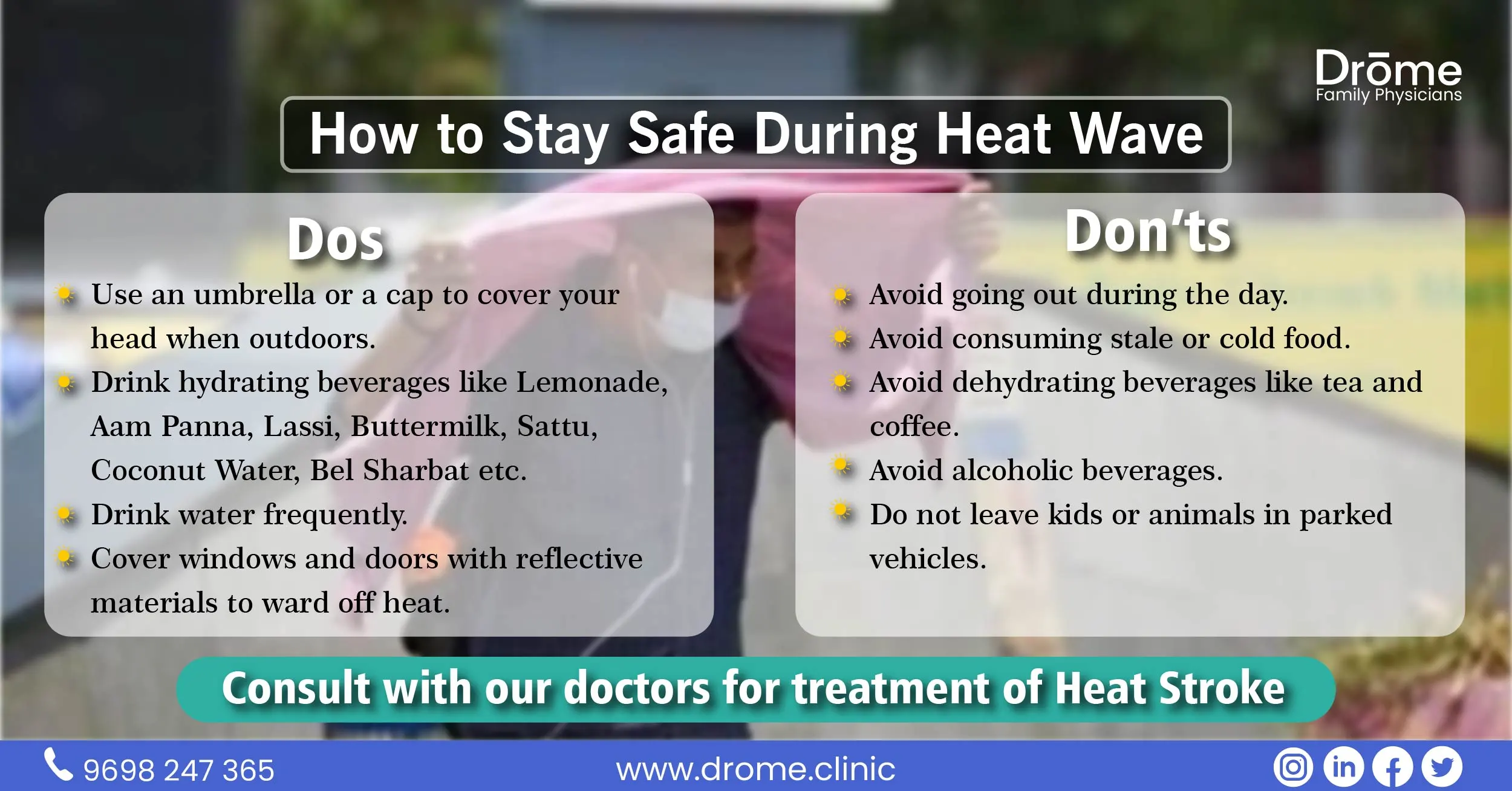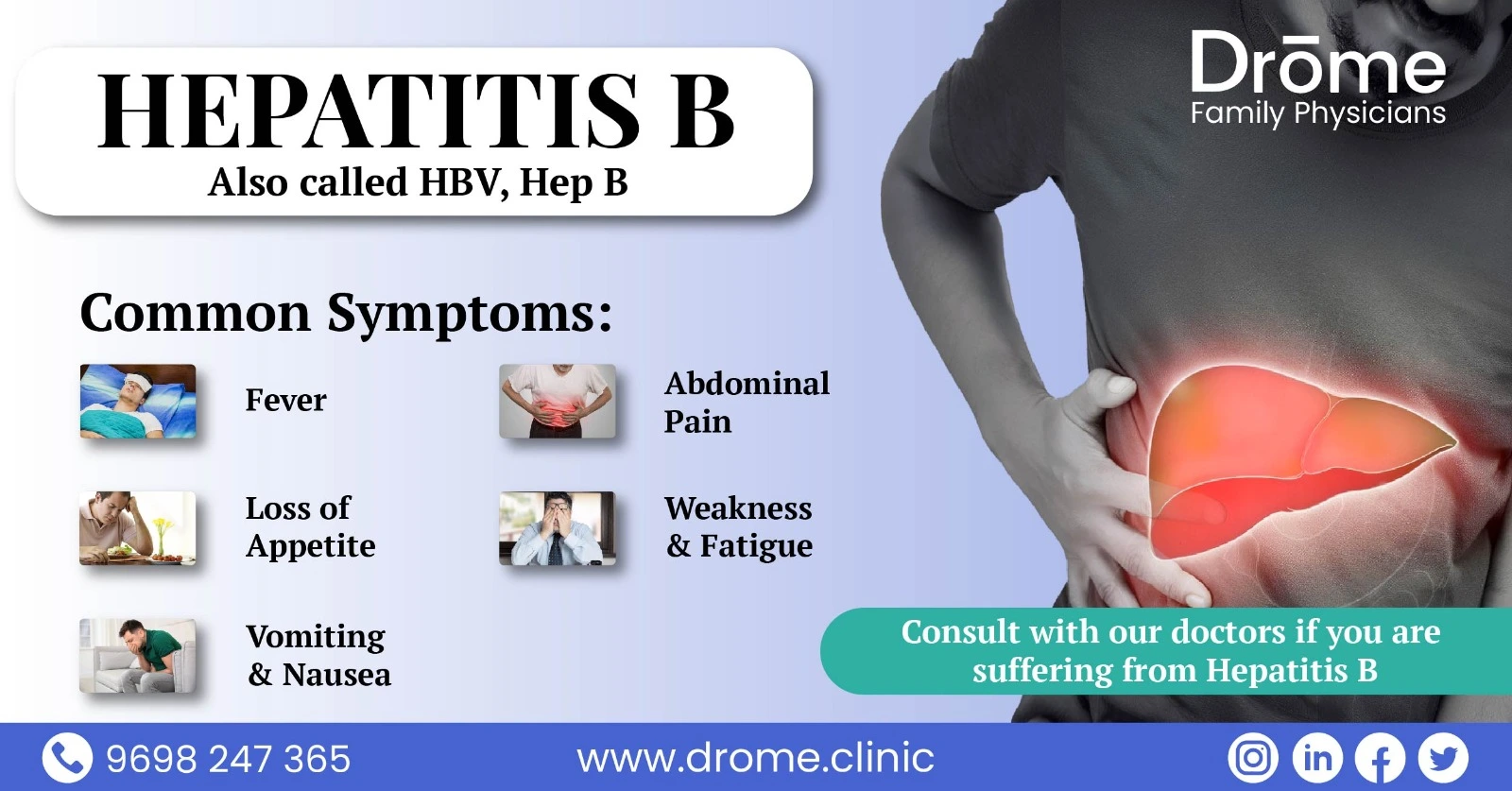Table of Contents
ToggleWhat is Influenza?
Influenza, commonly referred to as the “flu,” is a contagious respiratory illness caused by influenza viruses. It affects the nose, throat and sometimes lungs. There are 4 types of influenza viruses, types A, B, C and D. Influenza A and B viruses circulate and cause seasonal epidemics of disease.
Symptoms:
Symptoms of the flu can range from mild to severe and can sometimes lead to hospitalization or even death. Common symptoms include:
- Fever*
- Cough
- Sore throat
- Runny or stuffy nose
- Muscle or body aches
- Headaches
- Fatigue (tiredness)
Some people may also experience vomiting and diarrhea, though this is more common in children.
*It’s important to note that not everyone with flu will have a fever.
How Does Influenza spread?
Influenza is caused by influenza viruses that infect the respiratory tract (i.e. the nose, throat, and lungs).
It spreads mainly by tiny droplets generated when people with influenza cough, sneeze or talk.
These droplets can land in the mouths or noses of people nearby, potentially infecting them. It’s also possible to get influenza by touching a surface that has the flu virus on it and then touching one’s mouth, nose, or eyes.
Period of Contagiousness#
You may be able to spread flu to someone else before you know you are sick, as well as when you are sick with symptoms.
- People with flu are most contagious in the first 3-4 days after their illness begins.
- Some otherwise healthy adults may be able to infect others beginning one day before symptoms develop and up to five to seven days after becoming sick.
- Some people, especially young children and people with weakened immune systems, might be able to infect others for an even longer time.
Factors contributing to influenza outbreaks include:
Virus Mutation: The influenza virus can mutate rapidly. As a result, new strains of the virus emerge regularly, making previous immunity (from past infections or vaccinations) less effective.
Close Proximity: Places where people are in close proximity, like schools or offices, are common areas for the spread of the virus.
Seasonal Changes: Influenza outbreaks are more common in the colder months in temperate regions.
Treatment**
Patients with uncomplicated seasonal influenza:
Patients that are not from a high risk group should be managed with symptomatic treatment and are advised, if symptomatic, to stay home in order to minimize the risk of infecting others in the community.
Treatment focuses on relieving symptoms of influenza such as fever.
Patients should monitor themselves to detect if their condition deteriorates and seek medical attention.
Patients that are known to be in a group at high risk for developing severe or complicated illness, (see above) should be treated with antivirals in addition to symptomatic treatment as soon as possible.
Preventing Seasonal Flu#
The first and most important step in preventing flu is to get a flu vaccine each year.
Flu vaccine has been shown to reduce flu related illnesses and the risk of serious flu complications that can result in hospitalization or even death.
CDC also recommends everyday preventive actions (like staying away from people who are sick, covering coughs and sneezes, and frequent handwashing) to help slow the spread of germs that cause respiratory (nose, throat, and lungs) illnesses, like flu.
Who Should Get Vaccinated?
WHO recommends annual vaccination for:
- pregnant women at any stage of pregnancy
- children aged between 6 months to 5 years
- elderly individuals (aged more than 65 years)
- individuals with chronic medical conditions
- health-care workers.
Influenza vaccine is most effective when circulating viruses are well-matched with viruses contained in vaccines.
Side Effects :
Like any medical intervention, the influenza vaccine can have side effects, but they’re generally mild.
Common reactions include soreness at the injection site, low-grade fever, or muscle aches.
Flu Vaccination Timing#
September and October are the best times for most people to get vaccinated.
Flu vaccination in July and August is not recommended for most people, but there are several considerations regarding vaccination in July and August for specific groups of people:
- For adults (especially those 65 years old and older) and pregnant people in the first and second trimester, vaccination in July and August should be avoided unless it won’t be possible to vaccinate in September or October.
- Pregnant people who are in their third trimester can get a flu vaccine in July or August in order to ensure their babies are protected from flu after birth, when they are too young to get vaccinated.
- Children who need two doses of flu vaccine should get their first dose of vaccine as soon as vaccine becomes available. The second dose should be given at least four weeks after the first.
- Vaccination in July or August can be considered for children who have health care visits during these months, if there might not be another opportunity to vaccinate them.
Visit our Drome clinic for further information on influenza and getting yourself vaccinated against influenza.
#CDC
**WHO

